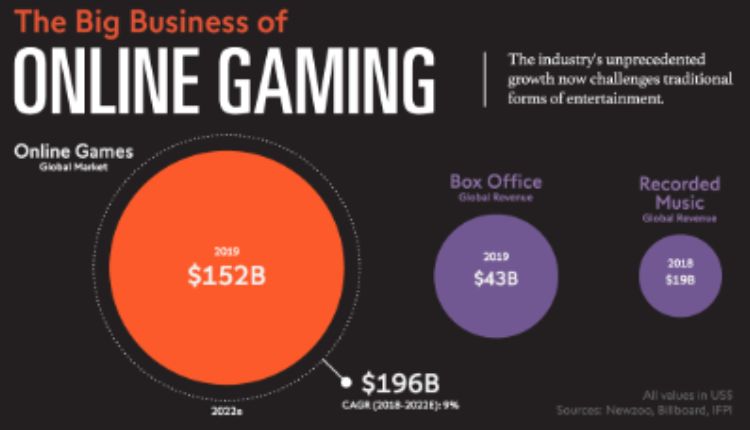The world of online gaming has witnessed an incredible transformation over the years, becoming a global phenomenon that transcends age, culture, and geographical boundaries. An online game is no longer just a leisure activity; it has evolved into a platform for social interaction, skill development, and even professional careers. The accessibility of the internet and advancements in technology have played a significant role in shaping this industry, making it one of the fastest-growing sectors worldwide.
A Brief History of Online Gaming
Online gaming’s journey began in the late 20th century, with simple text-based games and basic multiplayer features. Over time, innovations in graphics, connectivity, and gameplay mechanics have elevated the online game experience to new heights. Modern titles offer immersive worlds, realistic visuals, and sophisticated multiplayer capabilities that attract millions of players daily.
Today, an online game is more than just entertainment; it’s a way to connect with others, share experiences, and even explore new cultures. The inclusion of features like live streaming and integrated chats has enhanced the social aspect of gaming, making it a hub for communities to thrive. Online gaming offers a wide array of genres, catering to diverse preferences and skill levels. Each genre provides unique experiences that make an online game enjoyable for specific audiences. Let’s try Slot jepang.
Action and adventure games are among the most popular types of online games, providing thrilling challenges and exciting narratives. These games often include combat, puzzles, and exploration in vast virtual worlds. Players enjoy the adrenaline rush as they overcome obstacles and defeat enemies. Titles like battle royales and role-playing adventures fall into this category, where teamwork and strategy often play a critical role. The ability to customize characters and interact with others adds to their appeal.
Simulation and Strategy Games
Simulation and strategy games allow players to engage in more thoughtful, skill-based gameplay. In these games, players often build, manage, or lead teams, organizations, or civilizations. They focus on planning and execution rather than fast-paced action.
Popular titles in this genre include city-building simulators and real-time strategy games, where collaboration and long-term thinking are essential. The immersive experience of managing resources or making impactful decisions attracts players seeking intellectual challenges.
Benefits of Online Gaming
Engaging in online gaming provides more than just entertainment. Players can derive several cognitive, social, and emotional benefits from playing their favorite online game. Many online games require strategic thinking, problem-solving, and quick decision-making. These elements stimulate the brain and improve cognitive functions. Puzzle-based or strategy-focused online games are particularly effective in enhancing memory and analytical skills.
Moreover, multiplayer games demand coordination, attention to detail, and adaptability, which can translate into real-world skills. Playing an online game regularly can help individuals develop faster reflexes and critical thinking abilities. Online gaming connects people from different parts of the world, offering opportunities for social interaction. Players form teams, join communities, and build friendships while collaborating to achieve goals in their favorite online game.
This social aspect of gaming has been especially valuable during times of isolation, such as the COVID-19 pandemic, providing a sense of community and belonging. The ability to communicate and cooperate fosters teamwork and strengthens interpersonal skills.
The Impact of Online Gaming on Mental Health
While online gaming offers numerous benefits, its effects on mental health can vary depending on usage patterns. An online game can have both positive and negative impacts on a player’s well-being. Online games often serve as a stress-relief mechanism, providing an escape from daily pressures. Immersing oneself in an engaging online game can reduce anxiety and promote relaxation. The sense of achievement from completing levels or winning matches boosts self-esteem and motivation.
Additionally, online games with social elements foster connections, which can alleviate feelings of loneliness and enhance emotional support systems. Cooperative gameplay encourages trust and camaraderie.
Potential Negative Effects
Excessive gaming, however, can lead to issues like addiction, sleep disturbances, and neglect of responsibilities. Prolonged screen time can also contribute to eye strain and physical inactivity. Balancing time spent playing an online game with other activities is essential to avoid these pitfalls.
Parents and guardians should monitor younger players’ gaming habits to ensure healthy engagement. Setting boundaries and promoting breaks can mitigate potential risks.
The Economic Impact of Online Gaming
The online gaming industry has become a significant contributor to the global economy, generating billions of dollars annually. The ecosystem surrounding an online game extends beyond developers, encompassing advertisers, streamers, and esports professionals.
Online games generate income through various channels, including in-game purchases, subscription models, and advertisements. Microtransactions, such as buying cosmetic items or unlocking premium content, have become a common revenue source for many titles like Slot server jepang.
Additionally, esports tournaments attract massive audiences and sponsorship deals, further fueling the industry’s growth. Popular online games often serve as platforms for competitive events, offering substantial prize pools and career opportunities for professional players. The demand for online games has created job opportunities in development, marketing, and customer support. Independent developers and large gaming companies alike benefit from the growing market.
Countries with strong gaming industries experience significant economic contributions, from tax revenues to tourism linked to gaming events. The expansion of online gaming continues to drive innovation and investment worldwide. Despite its growth and popularity, online gaming faces several challenges that stakeholders must address to ensure a safe and inclusive environment for all players.
Cybersecurity and Privacy Concerns
Online games often involve sharing personal information, making players vulnerable to cyber threats such as hacking and identity theft. Developers must prioritize secure systems to protect user data and prevent fraud.
Players should also adopt safe practices, such as using strong passwords and avoiding suspicious links. Implementing parental controls can enhance safety for younger gamers engaging in an online game. Toxic behavior, including bullying and harassment, remains a prevalent issue in many online games. Negative interactions can discourage participation and harm players’ mental health.
Promoting positive community standards and implementing strict moderation can help mitigate these issues. Many online games now include features like reporting systems and muting options to empower players against toxicity. The online gaming industry shows no signs of slowing down, with advancements in technology paving the way for exciting innovations. Emerging trends suggest a bright future for the online game experience.
Virtual reality (VR) and augmented reality (AR) are revolutionizing the way players interact with online games. These technologies offer immersive experiences that blur the line between the digital and physical worlds.
With VR headsets and AR-enabled devices becoming more accessible, developers can create more engaging and realistic environments. Players can expect richer storytelling and enhanced gameplay mechanics in future online games.
Artificial Intelligence and Machine Learning
Artificial intelligence (AI) and machine learning are set to enhance online gaming in various ways, from smarter non-playable characters to personalized gameplay experiences. AI can analyze player behavior to adapt challenges and create dynamic narratives.
These advancements will make online games more intuitive and enjoyable, catering to individual preferences and skill levels. The integration of AI promises a more seamless and interactive gaming experience.
The rise of online gaming has transformed the entertainment industry, captivating millions of players worldwide. As technology continues to evolve, online games have become more immersive, social, and diverse, attracting people of all ages. This article delves into the fascinating world of online gaming, its impact on modern society, and why it has become a global sensation. Online gaming began with simple text-based games, evolving into complex, multiplayer experiences. Early games relied on basic connectivity and limited graphics. Today, online games feature cutting-edge visuals, realistic gameplay, and vast virtual worlds.
Advancements in internet speed, cloud computing, and gaming hardware have propelled online gaming into new dimensions. Features like real-time interaction, VR integration, and cross-platform play have elevated online games, offering a seamless experience. Online gaming offers numerous cognitive benefits, including improved problem-solving, hand-eye coordination, and strategic thinking.
Moreover, it fosters social connections by bringing players together through multiplayer modes. Online games encourage creativity through customizable avatars, virtual worlds, and innovative gameplay. Gamers often express themselves by designing characters or creating content within the game. These games offer thrilling experiences, combining fast-paced gameplay with engaging storylines. Popular titles include role-playing games (RPGs) and battle royales, where players test their skills against others.
Conclusion
Online gaming has evolved into a multifaceted platform that offers entertainment, social interaction, and economic opportunities. From its humble beginnings to becoming a global industry, the online game experience continues to captivate millions worldwide. While challenges such as cybersecurity and toxicity remain, advancements in technology and community efforts promise a brighter future for the industry. As players, developers, and stakeholders work together, online gaming will undoubtedly continue to thrive, enriching lives and connecting people across the globe.






